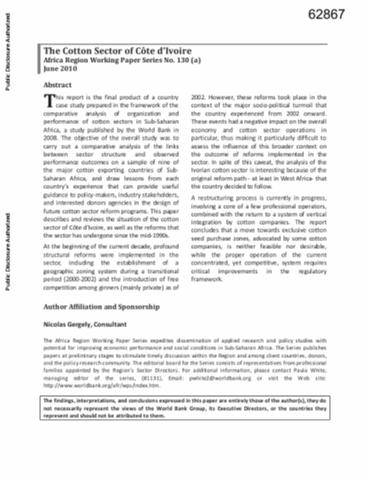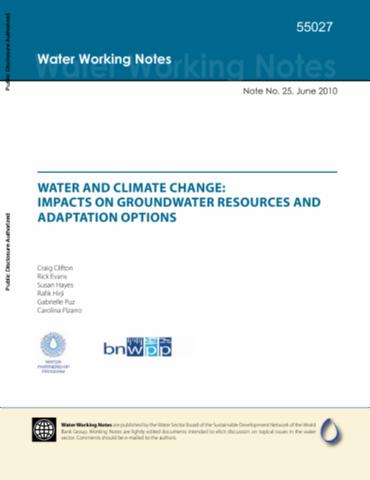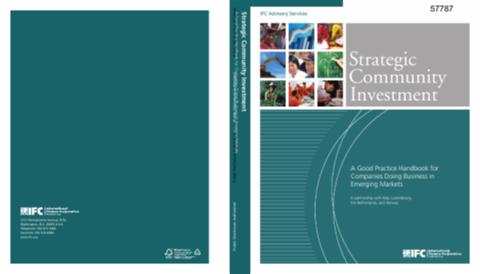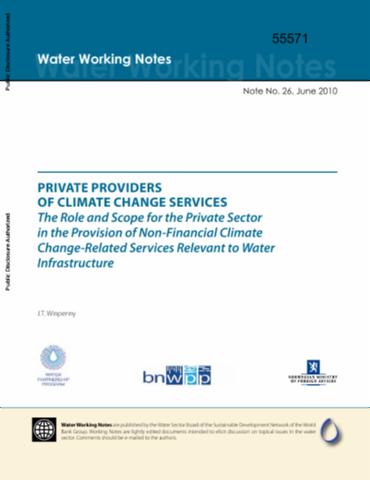The World Bank is a vital source of financial and technical assistance to developing countries around the world. We are not a bank in the ordinary sense but a unique partnership to reduce poverty and support development. The World Bank Group has two ambitious goals: End extreme poverty within a generation and boost shared prosperity.
- To end extreme poverty, the Bank's goal is to decrease the percentage of people living on less than $1.25 a day to no more than 3% by 2030.
- To promote shared prosperity, the goal is to promote income growth of the bottom 40% of the population in each country.
The World Bank Group comprises five institutions managed by their member countries.
The World Bank Group and Land: Working to protect the rights of existing land users and to help secure benefits for smallholder farmers
The World Bank (IBRD and IDA) interacts primarily with governments to increase agricultural productivity, strengthen land tenure policies and improve land governance. More than 90% of the World Bank’s agriculture portfolio focuses on the productivity and access to markets by small holder farmers. Ten percent of our projects focus on the governance of land tenure.
Similarly, investments by the International Finance Corporation (IFC), the World Bank Group’s private sector arm, including those in larger scale enterprises, overwhelmingly support smallholder farmers through improved access to finance, inputs and markets, and as direct suppliers. IFC invests in environmentally and socially sustainable private enterprises in all parts of the value chain (inputs such as irrigation and fertilizers, primary production, processing, transport and storage, traders, and risk management facilities including weather/crop insurance, warehouse financing, etc
For more information, visit the World Bank Group and land and food security (https://www.worldbank.org/en/topic/agriculture/brief/land-and-food-security1
Resources
Displaying 4661 - 4665 of 4906The Cotton Sector of Côte d'Ivoire
This report is the final product of a country case study prepared in the framework of the comparative analysis of organization and performance of cotton sectors in Sub-Saharan Africa, a study published by the World Bank in 2008.
Community-based Adaptation
The Development Marketplace 2009 focused on adaptation to climate change. This paper identifies lessons from the Marketplace and assesses their implications for adaptation support. The findings are based on: statistical tabulation of all proposals; in-depth qualitative and quantitative analysis of the 346 semi-finalists; and interviews with finalists and assessors. Proposals were fuelled by deep concerns that ongoing climate change and its impacts undermine development and exacerbate poverty, migration and food insecurity.
Water and Climate Change
Adaptation to climate impacts on groundwater resources in developed and developing countries has not received adequate attention. This reflects the often poorly understood impacts of climate change, the hidden nature of groundwater and the general neglect of groundwater management. Many developing countries are highly reliant on groundwater. Given expectations of reduced supply in many regions and growing demand, pressure on groundwater resources is set to escalate. This is a crucial problem and demands urgent action.
Strategic Community Investment
This handbook updates and expands upon the learning in IFC's 2000 community development resource guide entitled, Investing in People: Sustaining Communities through Improved Business Practice. It was produced in response to demand from companies for updated how-to guidance and current good practice approaches. Companies around the world engage in community investment efforts as a way to promote local development and benefit stakeholders in their areas of operations.
Private Providers of Climate Change Services
Man-made climate change is affecting water infrastructure in all regions of the world, affecting large numbers of people in their daily life and the development of their societies. As part of the World Bank Water Anchor's analytical and advisory work on water and climate change, consultants have investigated how private sector services to infrastructure may address the challenges related to climate change while, at the same time, improving development opportunities for people.










